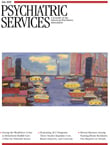Consider the term "expert." The Merriam-Webster Online Dictionary warns that its first definition, "experienced," is obsolete. It goes on to define expert as "having, involving, or displaying special skill or knowledge derived from training or experience." In medicine, the definition is augmented with an institutional certification or license.
Rethinking Expertise challenges the reader to think again in looking at the role of expertise in science and technology. Here is a quote from the book's opening pages: "We need a way to speak and think about science and technology that is not hostage to science's newfound epistemological weaknesses and short-term political impotence."
The authors view expertise in the light of science, experience, technology, public policy, and decision making. They ask how we judge others and how we judge experts when we are not experts ourselves. Similarly, as the book points out, there are many types and combinations of expertise—tacit (knowledge we "just have" but can't explain), specialized, contributory experience, ubiquitous (knowledge that everyone has, or knowledge that every specialist has), and interactional. There is even a "periodic table" of forms of expertise. Eventually the reader is convinced that not all experts are created equal.
An early emphasis in the book is the sociological view of "interactional" expertise—that is, proficiency in the language of a specialty but not in its practices per se. This touched a nerve with me in my work in physician peer review; how does a psychiatrist know who is a good surgeon? How do nondoctors judge the expertise of doctors?
The book is filled with experiments and examples (including medical examples) about how experts think, how they do or don't agree, how they behave on the basis of their expertise, and how experience and expertise are both helpful and not. It is the rare expert who is truly an expert in all arenas, and the public and consumers are ultimately in the role of choosing among different experts. In fact, Collins and Evans ask persistently, how can the public participate in technical decision making? Throughout the discussion, the authors maintain respect for traditional expertise as necessary and useful but consistently challenge the reader to consider how the public can judge science and technology apart from and ahead of expertise and in the context of conflicting opinions. The book opens with the argument that politics constantly outpaces the formation of scientific consensus.
The book is not easy reading, although it is well written (but who am I to judge?). It is densely packed with new ideas, some intuitive and some decidedly not. The authors generously sprinkle interesting vignettes and experiments throughout to illustrate their points, which provide the reader some cerebral relief.
This book would make a terrific textbook, certainly in philosophy and also in sociology and psychology. Scientists and engineers will find it fascinating. In this world of exploding technology, college students may find the authors' thinking easier to follow than those of us in a generation that reveres expertise and experience.
The reviewer reports no competing interests.

